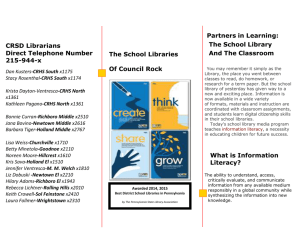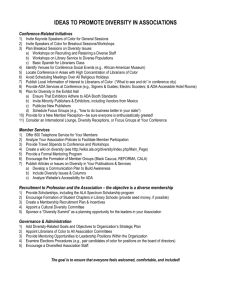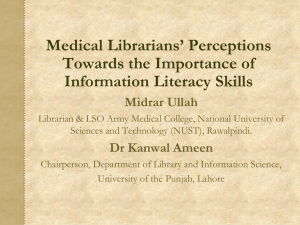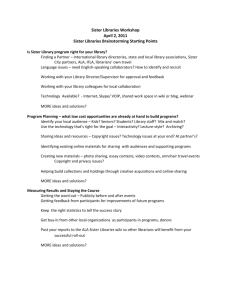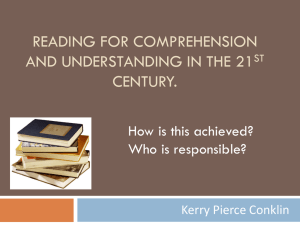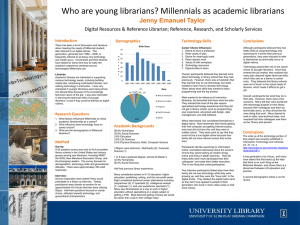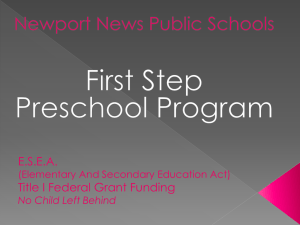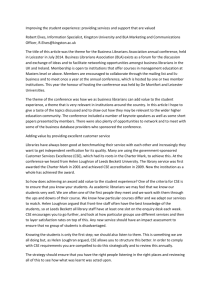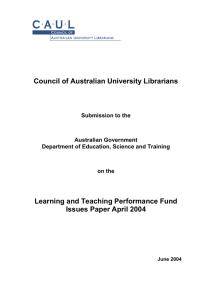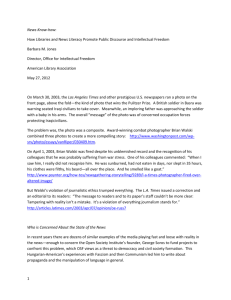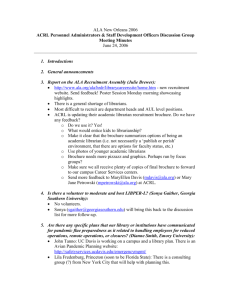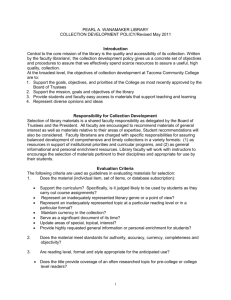School Libraries & Early Learning
advertisement
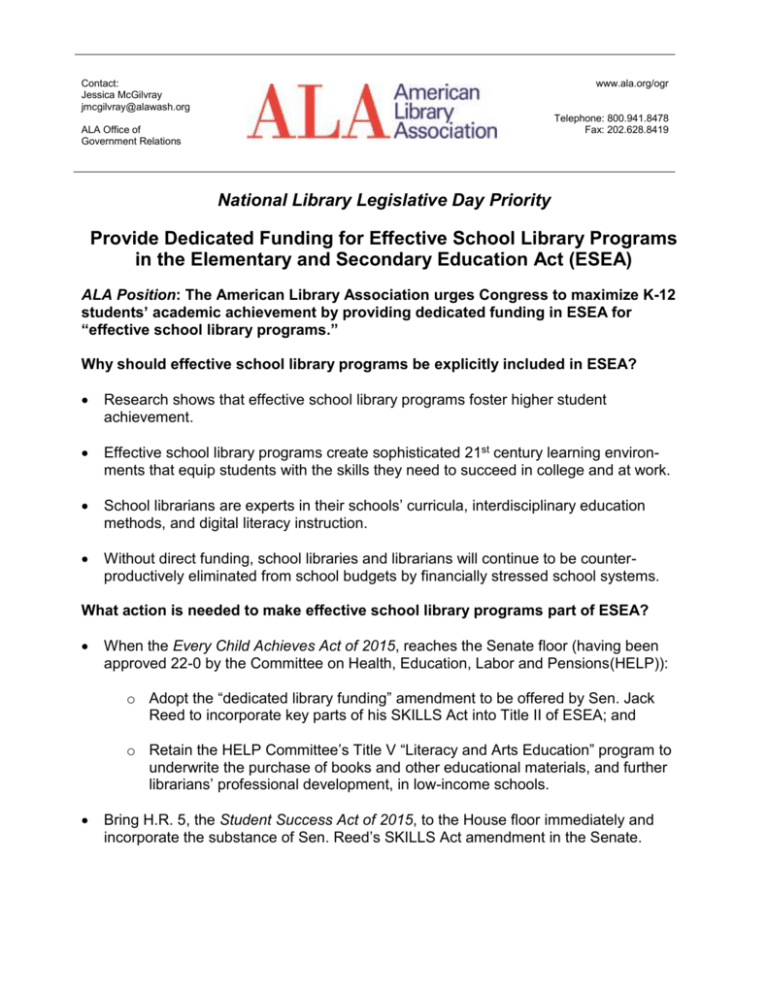
Contact: Jessica McGilvray jmcgilvray@alawash.org www.ala.org/ogr Telephone: 800.941.8478 Fax: 202.628.8419 ALA Office of Government Relations National Library Legislative Day Priority Provide Dedicated Funding for Effective School Library Programs in the Elementary and Secondary Education Act (ESEA) ALA Position: The American Library Association urges Congress to maximize K-12 students’ academic achievement by providing dedicated funding in ESEA for “effective school library programs.” Why should effective school library programs be explicitly included in ESEA? Research shows that effective school library programs foster higher student achievement. Effective school library programs create sophisticated 21st century learning environments that equip students with the skills they need to succeed in college and at work. School librarians are experts in their schools’ curricula, interdisciplinary education methods, and digital literacy instruction. Without direct funding, school libraries and librarians will continue to be counterproductively eliminated from school budgets by financially stressed school systems. What action is needed to make effective school library programs part of ESEA? When the Every Child Achieves Act of 2015, reaches the Senate floor (having been approved 22-0 by the Committee on Health, Education, Labor and Pensions(HELP)): o Adopt the “dedicated library funding” amendment to be offered by Sen. Jack Reed to incorporate key parts of his SKILLS Act into Title II of ESEA; and o Retain the HELP Committee’s Title V “Literacy and Arts Education” program to underwrite the purchase of books and other educational materials, and further librarians’ professional development, in low-income schools. Bring H.R. 5, the Student Success Act of 2015, to the House floor immediately and incorporate the substance of Sen. Reed’s SKILLS Act amendment in the Senate. National Library Legislative Day Supplemental Background: School Libraries ALA Position: The American Library Association urges Congress to maximize K-12 students’ academic achievement by providing dedicated funding in, the Every Child Achieves Act of 2015, for “effective school library programs.” An effective school library program: o Is staffed by a state-certified school librarian; o Has up-to-date books, materials, equipment and technology; o Includes regular collaboration between classroom teachers and school librarians to assist with the development and implementation of the curriculum; and o Supports the development of digital literacy skills. Why should effective school library programs be explicitly included in the Every Child Achieves Act? An effective 21st century school library program provides students with books selected to hone readers’ developing skills and to instill a love of reading. While reading and books are a mainstay of an effective school library program, today’s effective school library programs are also sophisticated learning environments that provide the broader education and skills necessary to succeed in college and at work. School librarians are expert in their schools’ curricula, interdisciplinary education methods, and in teaching information and digital literacy. State-certified school librarians coordinate closely with teachers in all academic departments and school administrators to help integrate and enhance student lessons, evaluate their effectiveness and improve school-wide data-based assessment systems. Not surprisingly, research repeatedly shows that an effective school library program is an integral component of a student’s successful education. Across the United States, studies have demonstrated that students in schools with effective library programs learn more, get better grades, and score higher on assessments than their peers in schools without such resources. Because “No Child Left Behind” failed to highlight the direct correlation between an effective school library program and increased student academic achievement, library resource budgets now are being eliminated or slashed to mitigate the effects of budgetary shortfalls. In fact, school libraries are some of the most underfunded classrooms in America and fully 40 percent of school libraries, serving hundreds of thousands of children, do not have full-time, state-certified school librarians on staff.
